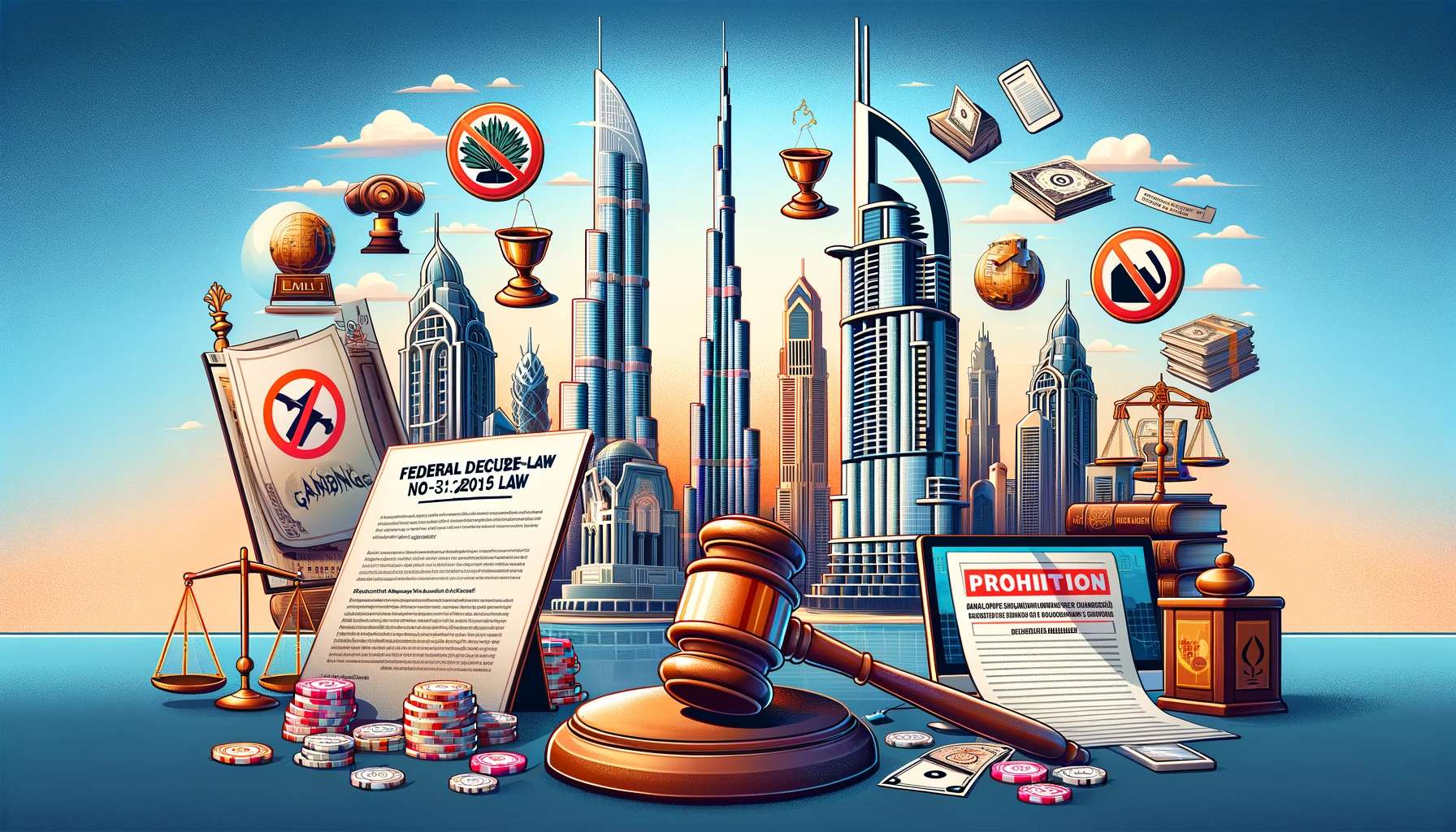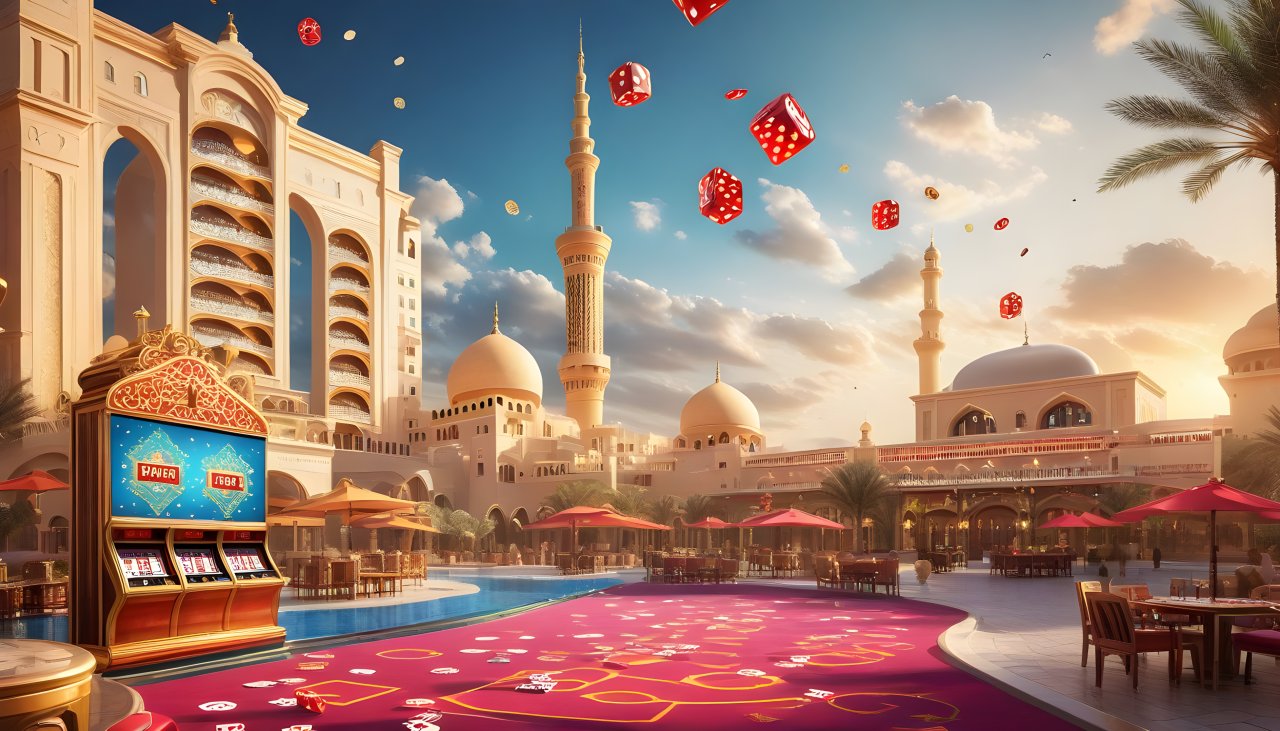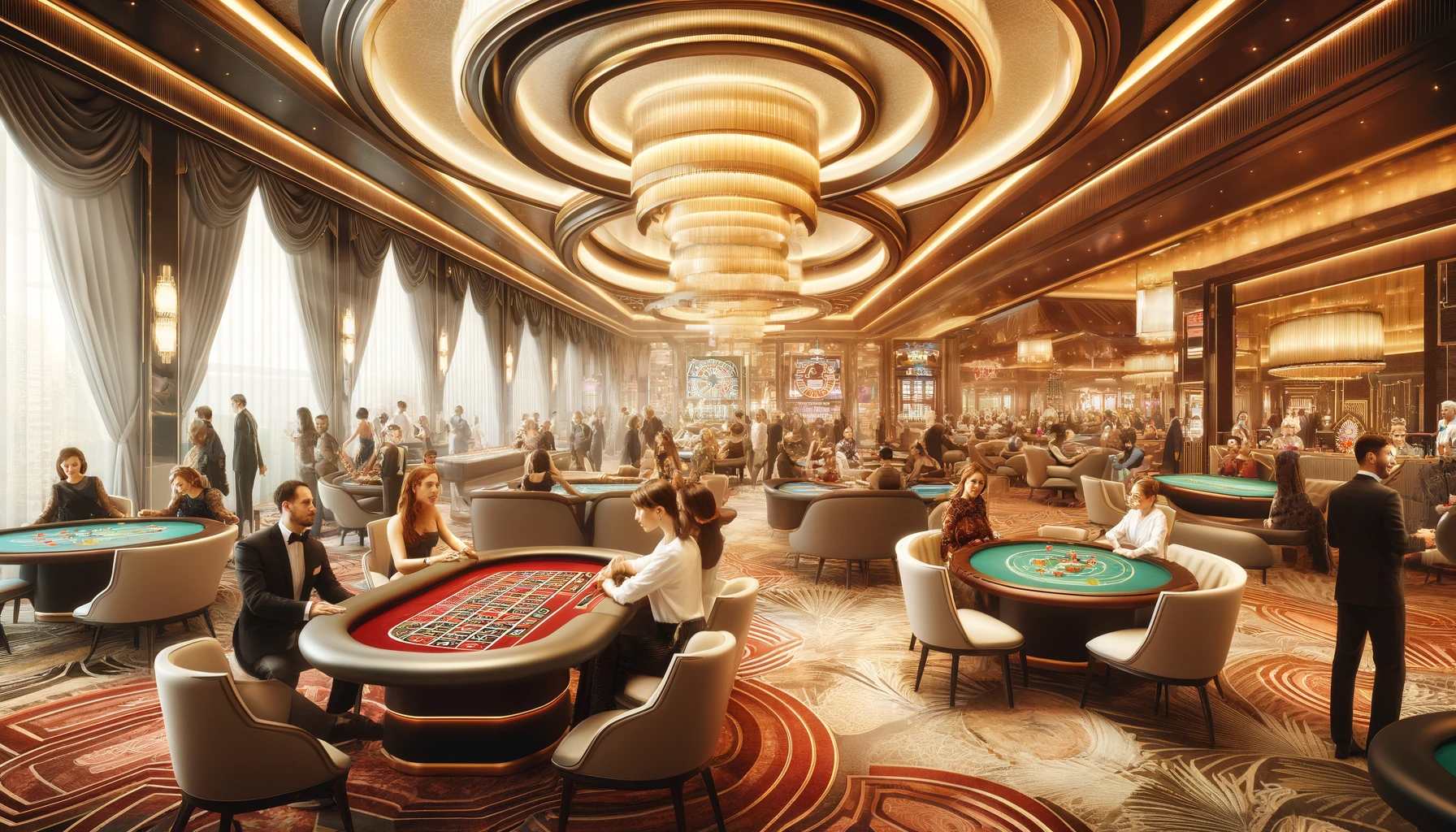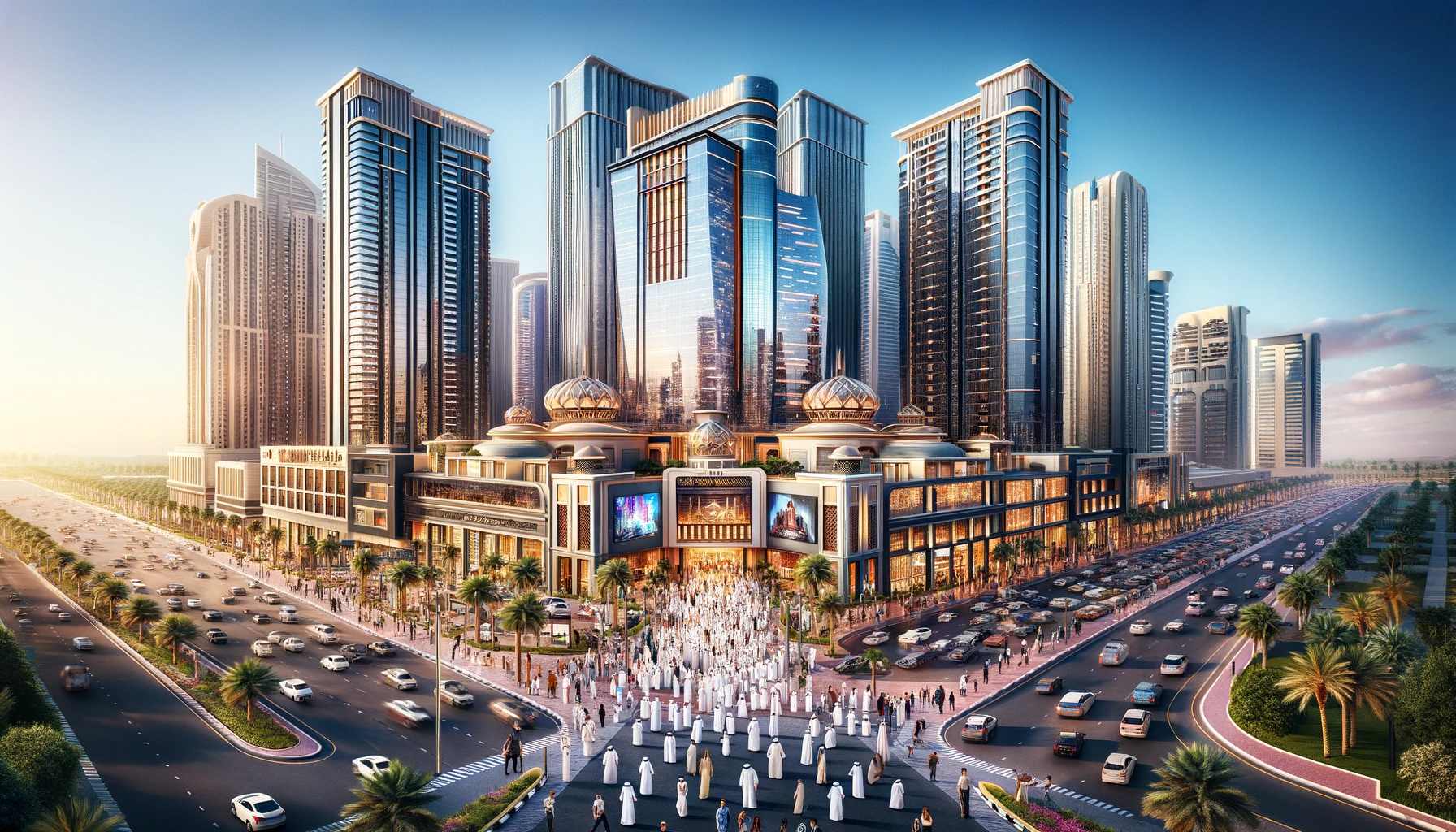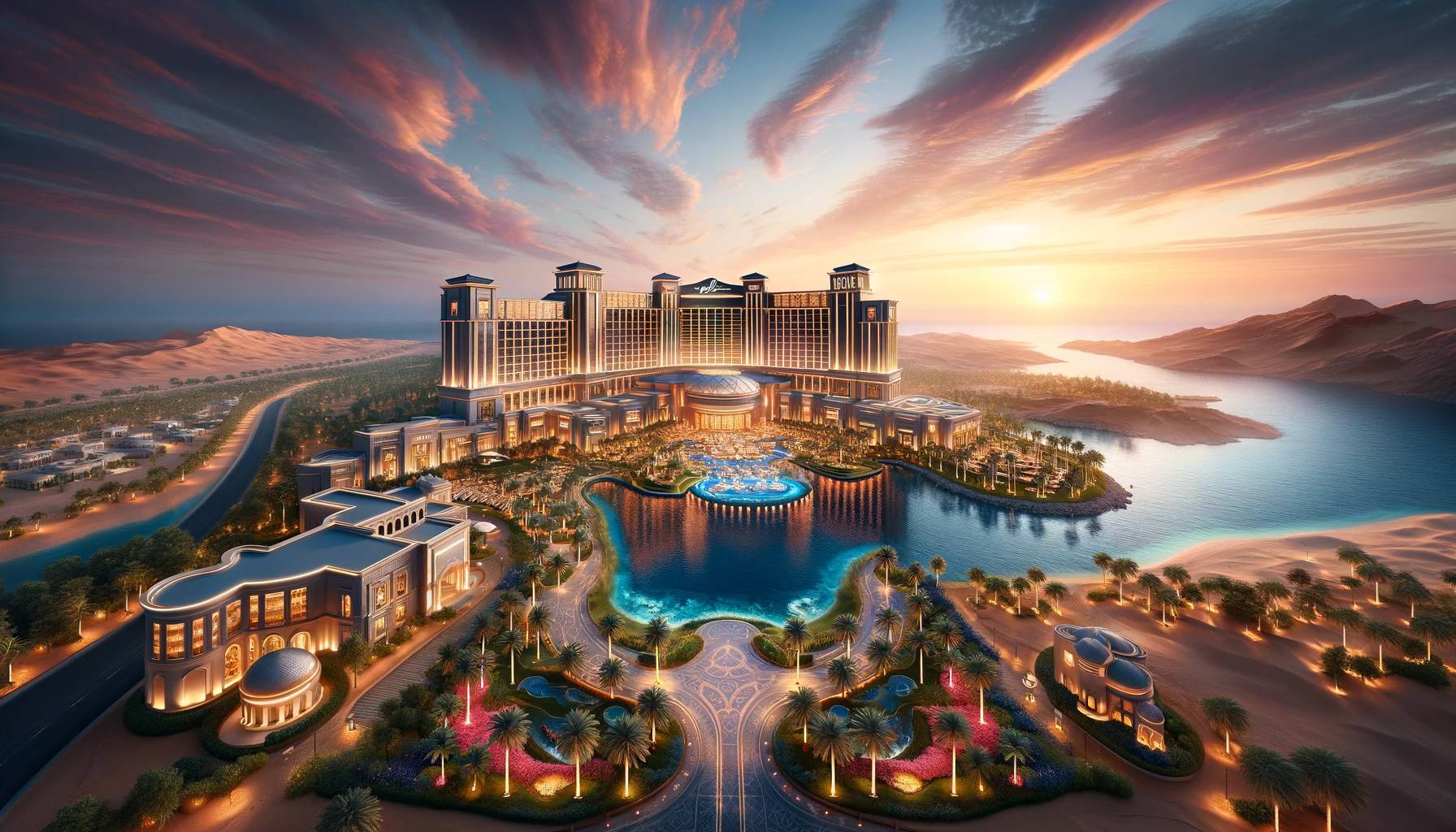Written by
Atif Nader
About Author
A native of the UAE with over a decade in the casino industry, Atif Nader stands as a leading voice in iGaming. Graduating from the University of Dubai, he seamlessly merged academic brilliance with his passion for gaming. As a vital contributor to Dubai Casinos, Atif's expert insights guide users throughout their gambling journey, ensuring trustworthiness and strategic play. With Atif on board, you're in expert hands.
Last Update
22 days ago
Last update:
What Dubai Can Learn from Singapore's Gambling Regulations?
What Dubai Can Learn from Singapore’s Gambling Regulations?

As the United Arab Emirates (UAE) takes its first steps toward legalizing gambling, Dubai is considering the possibility of attracting casinos to the city.
This move would not only have economic implications but also cultural and social ones, especially considering that gambling is a relatively new concept for Emiratis.
In this article, we examine what Dubai can learn from Singapore’s gambling regulations and its approach to striking a balance between economic gains and responsible gaming practices.
Singapore’s Gambling History
Singapore, a small island nation in Southeast Asia, has a complex history with gambling.
It traces its gambling roots back to the colonial era when it was a British colony. Various forms of gambling were common during this period, including horse racing and various types of betting.
In the 1960s, Singapore recognized the need to regulate and control gambling activities due to concerns about social issues and criminal activity associated with illegal gambling.
The government established the Singapore Pools in 1968 to oversee legal betting on horse racing and other sports events. The Tote Board was also established to manage the funds generated from gambling for charitable and community purposes.
The most significant shift in Singapore’s gambling landscape occurred in 2010 when the government decided to allow the operation of two integrated resorts with casinos, Marina Bay Sands and Resorts World Sentosa.
These casinos transformed Singapore into a major destination for gaming and tourism in Asia while maintaining strict regulations to mitigate potential social issues.
Why the Parallel with Dubai Makes Sense
Drawing parallels between Singapore and Dubai’s gambling considerations makes sense for several reasons:
- Economic Potential: Both Singapore and Dubai are international business and tourism hubs with the potential to generate significant revenue from the gambling industry. Singapore’s integrated resorts have been successful in attracting tourists and contributing to its economy, and Dubai sees a similar potential.
- Tourism Enhancement: The introduction of integrated resorts with casinos can enhance Dubai’s tourism offerings and attract a diverse range of visitors. This diversification of tourism experiences aligns with both cities’ goals of becoming global tourism destinations.
- Social Responsibility: Both Singapore and Dubai understand the importance of responsible gaming and mitigating the potential social impact of gambling. Lessons from Singapore can help Dubai implement measures to address problem gambling and promote responsible gaming practices.
- Online Public Parallel: The online gambling scene presents a significant parallel. While Singapore has stringent regulations against online gambling, Dubai has an opportunity to learn from this and determine its stance on online gambling. Striking the right balance between regulating and possibly legalizing online casino in Dubai, or maintaining strict control over it, is a crucial consideration in the digital age.
- Regulatory Framework: Singapore’s well-established regulatory framework for gambling can serve as a model for Dubai as it considers how to govern the industry effectively. Emulating Singapore’s stringent regulations can ensure the integrity of the industry.
Learning From Singapore

Singapore, a city-state in Southeast Asia, legalized gambling in 2010 with the opening of two integrated resorts, Marina Bay Sands and Resorts World Sentosa.
A key lesson for Dubai is the importance of stringent regulation and oversight.
Dubai can emulate Singapore’s approach by implementing comprehensive regulatory frameworks that govern all aspects of the casino industry, from licensing and taxation to operational standards.
Ensuring the integrity of the industry and preventing money laundering and other criminal activities should be top priorities.
Social Safeguards and Entry Restrictions
With the introduction of legal gambling, Singapore recognized the potential for social issues, particularly problem gambling.
Dubai can follow Singapore’s lead in implementing various social safeguards.
These may include:
- Self-exclusion programs;
- Counseling services;
- Extensive public awareness campaigns.
Singapore also imposes entry fees on its citizens and permanent residents to discourage excessive gambling.
Dubai could consider similar entry restrictions to limit access for locals, thereby reducing the potential negative consequences of gambling on its population.
These restrictions can also help control the number of Emiratis engaging in gambling activities.
Community Benefits
Singapore channels a significant portion of its casino revenue into charitable and community projects through the Tote Board.
Dubai can adopt a similar model to ensure that a portion of the revenue generated from gambling goes back into the community.
This not only helps offset some of the social concerns but also demonstrates a commitment to using gambling revenue for the betterment of society.
Tourism and Entertainment
Singapore’s integrated resorts offer not only casinos but also a wide range of entertainment, dining, and accommodation options.
Dubai can learn from this by focusing on creating integrated resort destinations that offer a comprehensive entertainment experience.
Such destinations can attract a diverse range of tourists, ensuring that gambling is just one part of a broader spectrum of activities.
As we know, MGM CEO has initiated the construction of a new entertainment complex in Dubai.
This scenario bears a striking resemblance to the historical development of Singapore, where transformative construction projects played a pivotal role in shaping the city-state.
The Ongoing Casino Discussion in Dubai
Dubai finds itself immersed in a spirited discussion about the possible legalization of casinos, placing the Emirate at the heart of a crucial debate.
This contemplation stems from a strategic desire to broaden revenue streams and stimulate tourism, indicating a multifaceted approach to economic development.
However, beyond its economic implications, the decision is delicately poised between fostering financial growth and safeguarding Dubai’s rich cultural and religious identity.
Dubai is already a popular tourist destination, and legal casinos could attract even more visitors, especially from countries where gambling is common – take a look of Macau status about this. On the other hand, the introduction of casinos could potentially clash with these cultural and religious norms. There may be concerns about how this change could affect local values and traditions.
Local Resident in Dubai – Voices of Dubai: Locals Speak Out on the Future of Casinos
Central to the discourse is the exploration of whether legalizing casinos could provide the economic upswing Dubai is aiming for, while simultaneously addressing apprehensions about their potential impact on local customs and values.
As Dubai carefully weighs the advantages and disadvantages, parallels are being drawn with the experiences of other nations in the casino industry. Notably, Singapore’s foray into the gambling scene serves as an instructive case study. Similar to Dubai’s current deliberations, Singapore also sought to diversify its revenue and enhance tourism through integrated resorts that included casinos.
Key considerations involve the regulatory framework for casinos, the accessibility criteria, and the implementation of measures to ensure responsible gambling.
Learning from Singapore’s journey, Dubai aims to glean valuable insights to navigate the nuanced landscape of introducing casinos while preserving its unique cultural fabric.

